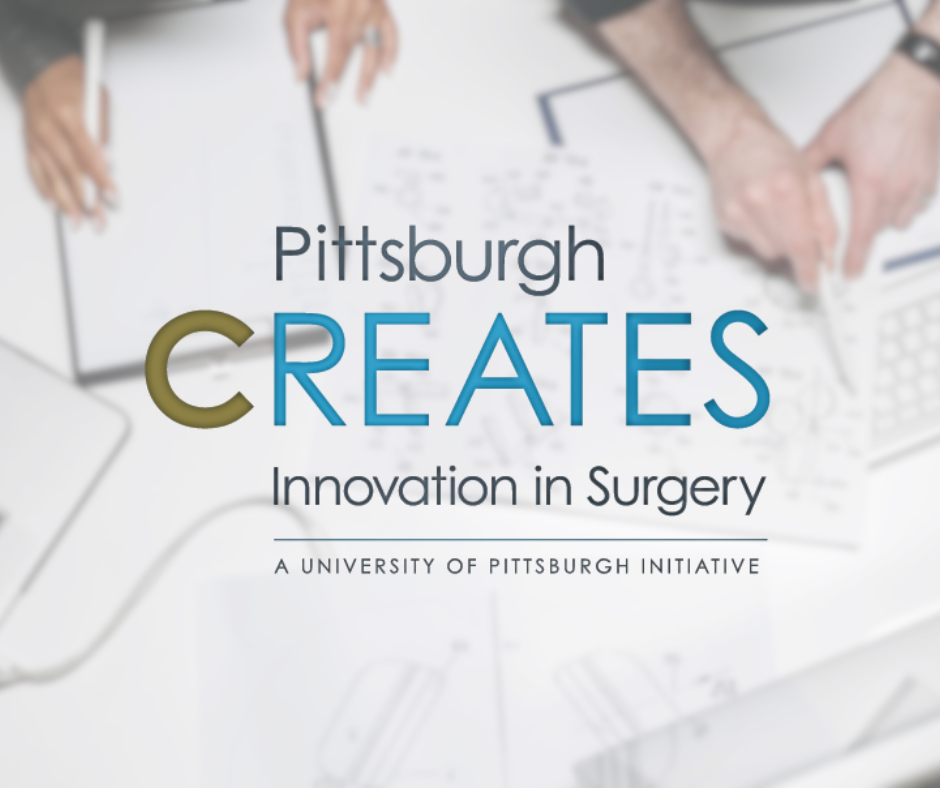When Mohit Singhala, PhD, joined the University of Pittsburgh in September as Research Assistant Professor and lead engineer of Pittsburgh CREATES, he spent the first three months talking to various stakeholders in the Pitt innovation space.
“We knew we wanted to run a fellowship and thought it would be best to run a pilot cohort with the Department of Otolaryngology-Head & Neck Surgery, since that is where all the three directors of CREATES have their primary appointment,” Dr. Singhala said.
Focused on improving the translational potential of the Pittsburgh healthcare ecosystem, CREATES is co-directed by Peter Santa Maria, MD, PhD, and Carl Snyderman, MD, MBA.
Recognizing that translation is an inherently multidisciplinary challenge, especially in regulated industries like healthcare, CREATES has started a fellowship for people interested in embarking on their innovative journey but who may need support to better gauge the bigger picture and navigate the academic environment. A significant portion of the training is focused on entrepreneurship. They make sure the fellows know that translation can also come from licensing, doing something in their own community, and being more innovative around how they train others or carry out their research.
The fellowship offers the opportunity to learn about the Biodesign process of innovation that originated at Stanford. Dr. Singhala also adds things from the Hopkins Center for Bioengineering Innovation and Design master’s curriculum. The fellows are trained on how to find unmet needs, evaluate the technical, clinical, regulatory, and monetary constraints/opportunity, prioritize which ones to work on, figure out the requirements a solution must meet, brainstorm solutions, and come up with a project plan.
The first cohort was created in December, with the fellowship starting the first week of January and ending April 21. It consisted of one resident, Nanki Hura, MD; one Fellow, Margaret Engelhardt, MD; and two faculty, Noel Jabbour, MD, MS, FACS; and Chloe Santa Maria, MD, MPH. Each fellow was paired with a four member student engineering team, who were undergoing product development training at the School of Bioengineering.
The group met weekly for one to two hours every Monday, and then Dr. Singhala had a one-hour individual meeting with each fellow on a weekly basis. These meetings are flexible, however, designed to accommodate the fellows’ schedules.
Dr. Hura described the fellowship as an “outstanding experience,” where she learned how to “thoughtfully approach unmet medical needs, validate them, and then explore creative but feasible solutions.” She plans to integrate this innovation framework into her future career, which is to be an academic neurotologist.
Dr. Jabbour said the opportunity to step away from day-to-day clinical care to gain a broader perspective on underlying clinical problems and ideate potential solutions is powerful. “As clinicians, we are on the front lines of these issues and bring unique insights into how they can be resolved,” he added. “Going through the entire design process – from defining the problem to developing a prototype solution and understanding regulatory and intellectual property concerns – is beneficial not only for the specific problems we addressed but also for comprehending this process for future solutions.”
Each fellow was paired with a group of graduate students from the Swanson School of Engineering at the University of Pittsburgh. Dr. Jabbour’s group focused on the clinical problem of tympanostomy tube placement in children, which, given its high frequency (over 500,000 cases per year), has significant potential for process improvement. “What are the barriers to successfully performing this procedure outside of the operating room?” Dr. Jabbour asked. “Several commercial products already exist for in-clinic tube placement, but they have not been widely adopted. Developing a deeper understanding of this problem and its barriers has allowed us to begin ideating solutions for a product that may overcome these obstacles.”
The graduate student group has a further class that involves refining the prototype to create solutions suitable for mass production. Dr. Jabbour plans to continue working with them during their next semester course. They are currently working on grant proposals to obtain funding for further development and testing of the prototype.
The plan is to run two fellowship cohorts every year, running parallel to the spring and fall semesters, so student teams undergoing graduate education in innovation in their respective departments can be paired up with fellows. CREATES is already in talks with the anesthesiology department for fellows and will reach out to others as well.
The center’s vision is to serve the entire Pittsburgh ecosystem eventually, encouraging collaborations outside Pitt as well. “It will take us some time and experimentation, but training is not limited to just otolaryngology, medicine, or even engineering,” Dr. Singhala said. “I am particularly keen on having representation from rehabilitation and public health in upcoming cohorts of the fellowship. We intend to iteratively improve the fellowship to meet the unique needs of the Pittsburgh ecosystem.”
